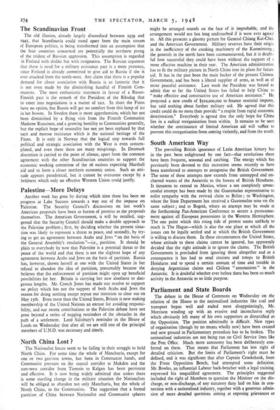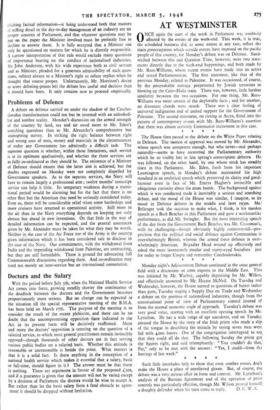Parliament and State Boards
The debate in the House of Commons on Wednesday on the relation of the House to the nationalised industries like coal and transport began well and ended most disappointingly, Mr. Morrison winding up with an evasive and inconclusive reply which obviously left many of his own supporters as dissatisfied as the Opposition. The position admittedly is difficult. New types of organisation (though by no means wholly new) have been created and new ground in Parliamentary procedure has to be broken. The nationalised industries are not being run on Civil Service lines like the Post Office. Much more autonomy has been deliberately con- ferred on them. That means that Parliament has less right of detailed criticism. But the limits of Parliament's right must be defined, and it was significant that after Captain Crookshank, from the Front Opposition Bench, had attempted some definitions Mr. Bowles, an influential Labour back-bencher with a legal training. expressed his unqualified agreement. The principles suggested included the right of Members to question the Minister on the dis- charge, or non-discharge, of any statutory duty laid on him in con- nection with a nationalised industry, together with a generous admis- sion of more detailed questions aiming at exposing grievances or
eliciting factual information—it being understood both that matters of trifling detail in the day-to-day management of an industry are no proper concern of Parliament, and that whatever questions may be put on the paper the Minister involved must be perfectly free to decline to answer them. It is fully accepted that a Minister can only be questioned on matters for which he is directly responsible. A narrow interpretation of that rule would exclude many questions of importance bearing on the conduct of nationalised industries. Sir John Anderson, with his wide experience both as civil servant and as Minister, pleaded for a generous admissibility of such ques- tions, subject always to a Minister's right to refuse replies when he thought that course proper. Unfortunately, Mr. Morrison's desire to score debating-points left the debate less useful and decisive than it should have been. It only remains now to proceed empirically.































 Previous page
Previous page